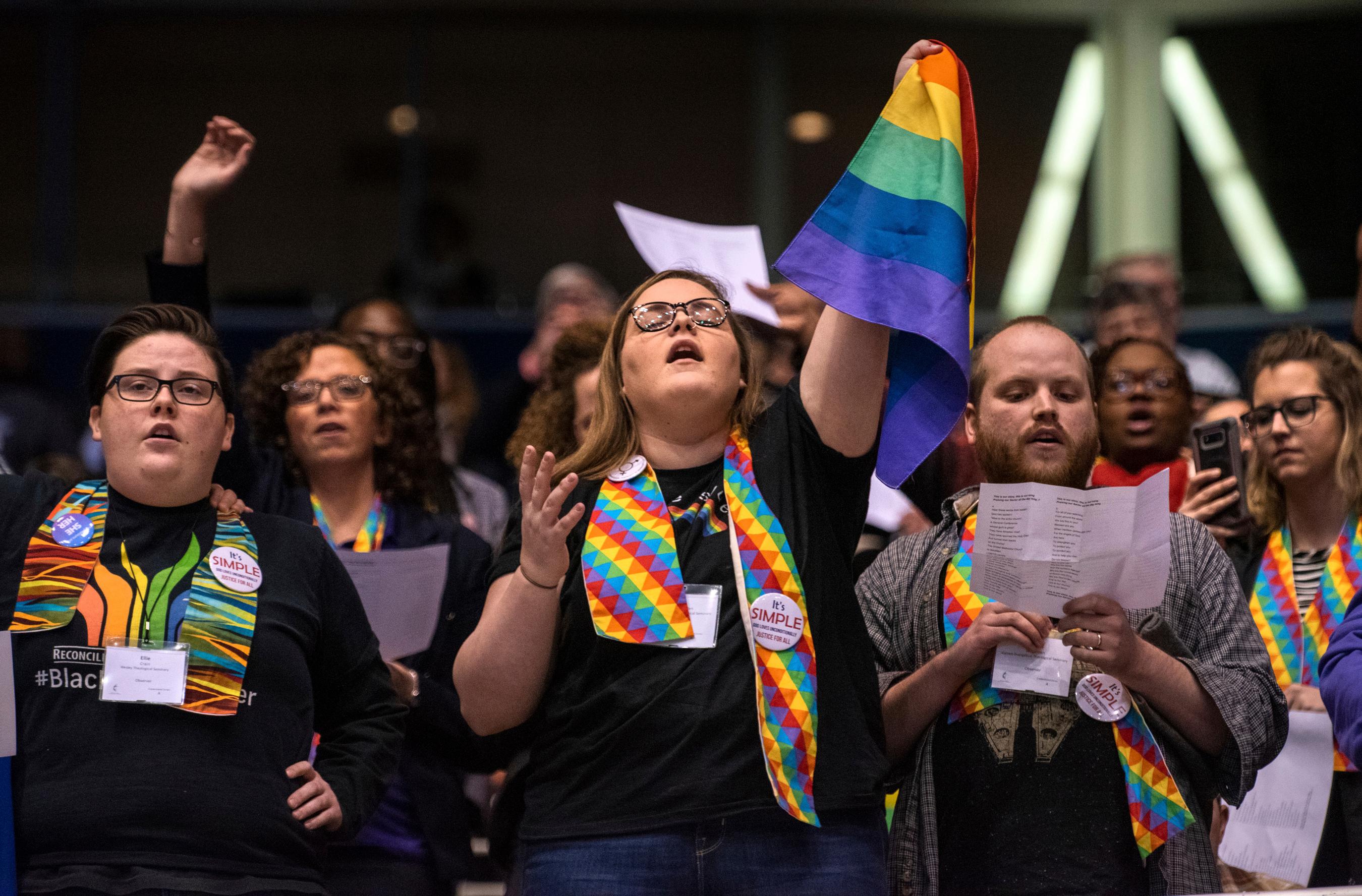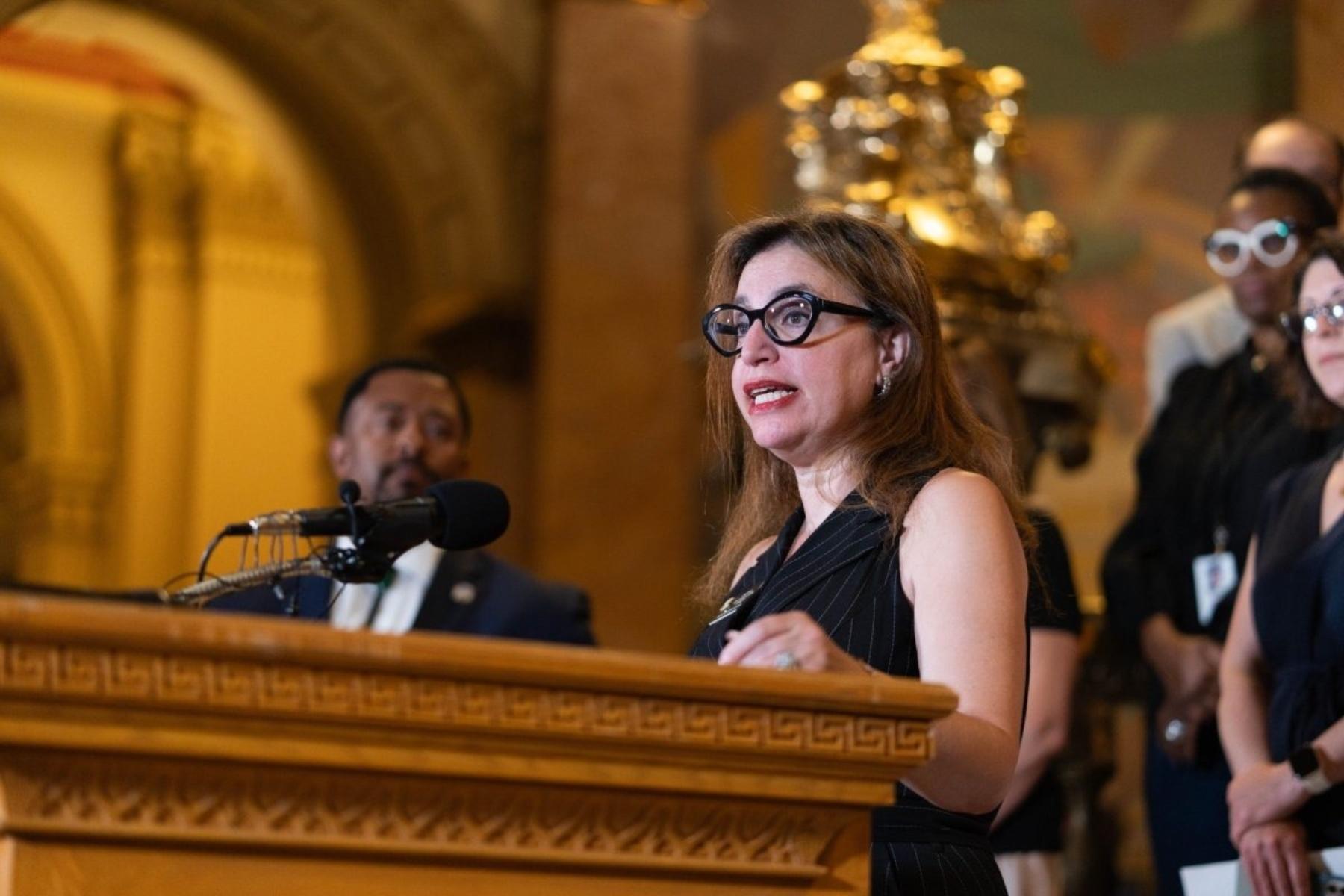

In a narrow vote in St. Louis on Tuesday, United Methodist Church leaders banned same-sex marriages and members of the LGBTQ community from being ordained.
In Denver, the Iliff School of Theology is uncertain about its future.
“We have some reflection to do and it's hard to project this on the first day after that decision,” said the Rev. Thomas Wolfe, president and CEO of Iliff. “There will be lots of conversations going forward as both the church adjusts to this, deals with this, and as Iliff contemplates its own future.”
Wolfe said 30 percent of Iliff students identify as members of the LGBTQ community and his main concern is how those students will be restricted from dedicating their lives to the church.
“The Book of Discipline of the United Methodist Church is already restrictive,” he said. “The difference in this is that is now restrictive with consequences. And so that really is the difference between what we have and what we're moving toward.”
A special session of the church’s general conference was dedicated to determining the church’s relationship to the LGBTQ community this week. After hours of debate on Tuesday, the “Traditional Plan” was approved by a vote of 438-384.
The Traditional Plan's success was due to an alliance of conservatives from the U.S. and overseas. About 43 percent of the delegates were from abroad, mostly from Africa.They overwhelmingly supported the LGBTQ bans.
A statement from by the Association of United Methodist Theological Schools said most students are young and do not want their church lives to be based on excluding people in the LGBTQ community.
“It is clear to all of us as heads of seminary that if the Traditional Plan passes, many students and prospective students will decide there is no place for them in this denomination,” according to the statement. “If the Traditional Plan passes, we will very soon lose an entire generation of leadership here in the United States.”
The other option for delegates at the conference was the “One Church Plan,” which failed. It would have let individual churches decide how they handle issues of same-sex marriages and their clergy’s sexuality. Wolfe said the One Church Plan wasn’t a good option for Iliff either.
“It gives all of those entities an opportunity to either be fully restricted and be conservative about the LGBTQ concerns or you could be completely affirming and be open,” he said. “It doesn't address the full inclusion, which is really the only, I think, theological position the church can take that has any integrity.”
The Rev. Sharon Langfeldt from Christ Church United Methodist in Denver, a congregation known for being LGBTQ-friendly, said each plan had its flaws.
“This has been something that has been ongoing in the United Methodist Church for years,” she said. “There is some level of disappointment and surprise … I think (people) want to know why and how that could be.”
Langfeldt, who is gay, said she is not facing any consequences after the vote, but it’s too soon to tell if the Christ Church will separate from the United Methodist Church.
The United Methodist Church's first openly gay bishop, Karen Oliveto, also lives in Colorado. She oversees a large region of the church that covers all of Colorado, Wyoming, Montana, Utah and part of Idaho. She also said the move will not affect her position in the church, at least not right now.
In the meantime, Langfeldt said parishioners and clergy members should not feel discouraged to attend services.
“I am blessed to serve in a church that works with all people and doesn't exclude people from any part of the table leadership,” she said. “There’s always a place. There’s a place if God calls. There is a place to move and God will make the way.”
Park Hill United Methodist Church and Christ Church will have a vigil on Thursday to support their LGBTQ communities and pray for inclusion.
The United Methodist Church is America's second-largest Protestant denomination.The next General Conference will be in May 2020 in Minneapolis.
The Associated Press contributed to this reporting.









